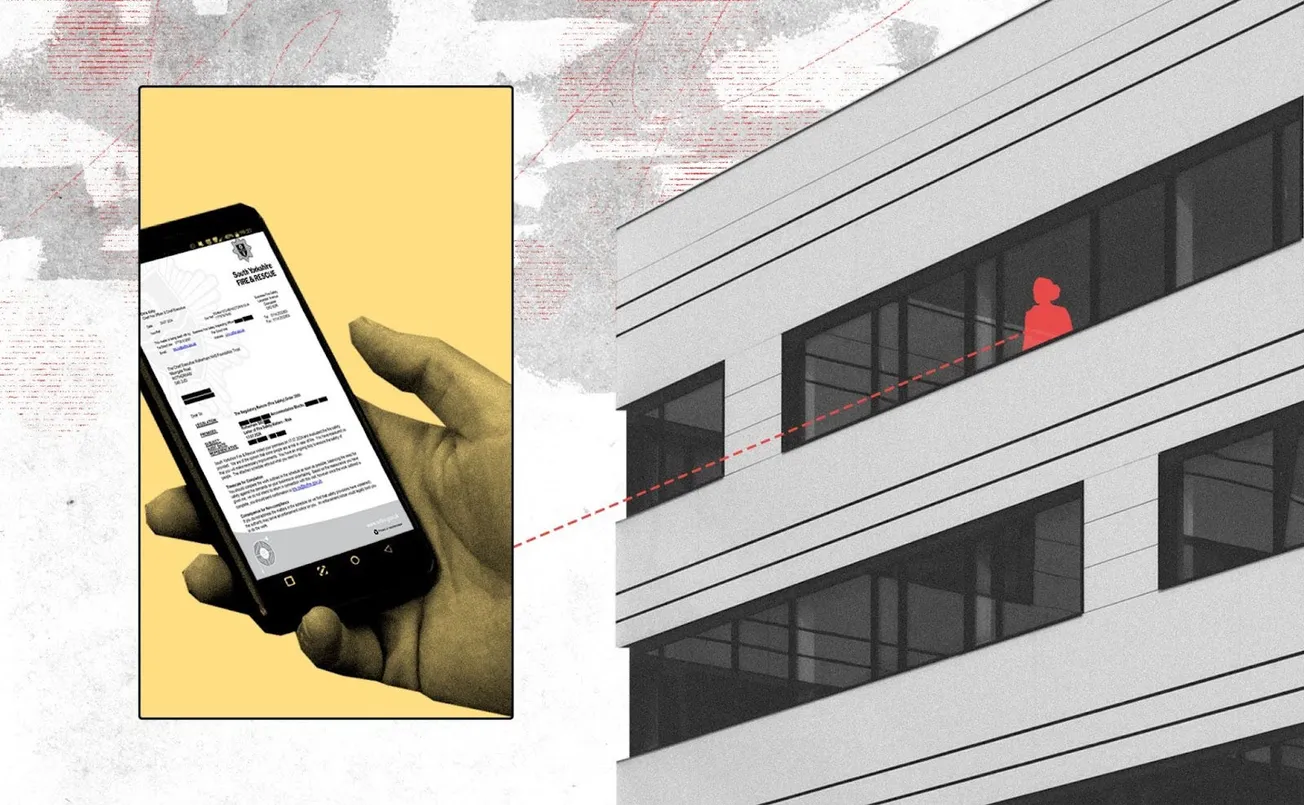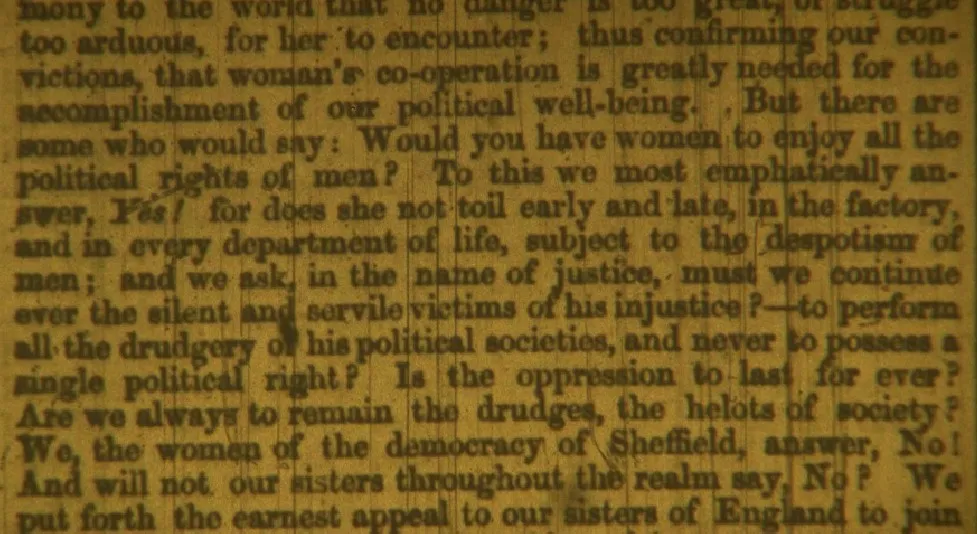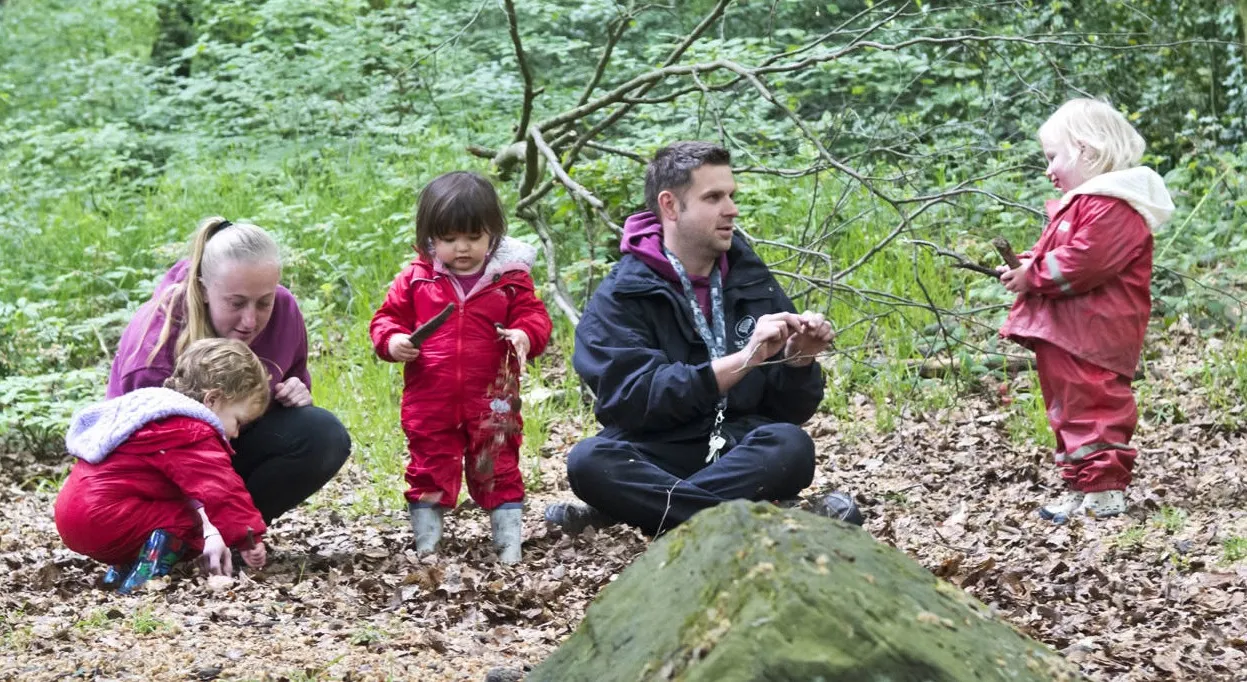Sometimes, journalism is about beautiful writing. Other times, it’s about learning something you never knew about your local area. Occasionally, it is about doing something far simpler than this: fact checking a claim that sounds…not quite right.
When journalist Jessica Bradley wrote to tell us that 82 medical trainees, medical students and hospital employees in Rotherham were being forced to leave their affordably priced on-site accommodation after a report had flagged some fire safety problems, this seemed a reasonably interesting story. When she subsequently told us that the NHS trust who owns the housing priced those repairs — plus two non fire-related problems — at £4.2 million, we were hooked.
We are not experts in building safety, but it seemed unlikely to us that the cost of fire alarms and fire-safe doors could add up to one million, never mind north of that. That’s today’s story. If you care about being pedantic about sums, about the quality of healthcare you receive, and about your doctor not having to wait for hours at the bus stop in the cold when she finishes her shift at 4am, this piece is for you.
Editor’s note: If you’d like to support local journalism that stands up to institutions across Sheffield and South Yorkshire, please consider joining us today. We’re aiming to hit a mighty 2,500 paid subscribers by the end of the year — a figure we’re currently 170 short of. To help us hit that target, click the button below.
Enjoy a lunch less ordinary at Dream Life Deli

Shahrzad set up Dream Life Deli after moving to the UK from Iran, where she had run a catering business. She saw the opportunity to introduce her food to the people of Sheffield by setting up in Leah’s Yard. Dream Life Deli stock a range of international cuisine — and as The Tribune can attest, the baklava is to die for.
The deli is one of many intriguing and unusual businesses in Leah’s Yard — see the full list here or pop down to see what all the fuss is about.
This post is sponsored by Leah’s Yard
Your Tribune briefing
🚶 Green councillors tabled a motion at Wednesday’s Full Council meeting to make Sheffield the UK’s first “pedestrian friendly city”. The party says it wants pavements cleared of obstacles, better parking enforcement and more crossings, 20mph zones and low traffic neighbourhoods. They claim their proposals would have “environmental, health and financial benefits for everyone”, but they would need the backing of the council to be implemented.
🥬 The Sheffield social food enterprise Food Works have been given permission to use the former Norton Nurseries site in Graves Park. The glasshouses were first opened in 1983 and were originally used to grow and supply bedding plants for Sheffield parks, but haven’t been used since the mid-1990s. Produce grown on the site will be used at Food Works’ cafes and kitchens, while plants will be given to schools and other groups to grow their own.
⚽ If you happen to be in town this Sunday and the place is swarming with police — don’t worry, it’s just the Steel City Derby. The first match between United and Wednesday in over five years will take place with the Blades riding high in the Championship and the Owls in mid-table having endured a mixed season so far. BBC Radio Sheffield’s legendary Football Heaven show had a special programme previewing the hotly-anticipated game on Wednesday night.
By Jessica Bradley
It was a warm Tuesday morning in July this year when the accommodation officer dropped a letter off at all the flats in Swale Court, Derwent Court and Loxley Court. Many of the tenants had already walked their five-minute commute to work, past the Busy Bees nursery and the staff car park, to Rotherham hospital. Others were starting to sleep off their night shifts.
When Amara (name changed) opened the letter, she had a panic attack. There had been no warning, no consultation, nothing. Amara originally hails from West Africa and is training to be a GP in Rotherham. She chose the town due to the fact the hospital is one of the last remaining NHS Trusts that offers on-site housing for staff. The letter, from Rotherham NHS Foundation Trust, told her – and her 81 neighbours – that it had recently assessed the three accommodation blocks, which were built in the 1970s, and concluded that it no longer made financial sense to maintain them. They were all given six months to move out.
According to the letter, the buildings need repairing, but it would cost more than the Trust can afford. As such, they are planning to ‘close the residencies’ (it’s unclear if this would mean selling the buildings, using them for a different purpose or demolishing them). What has followed over the last four months has been a mess of obfuscations, confusion, apologies and accusations between the tenants and the Trust.
The decision to close the residencies can be traced to a fire report, which tenants got hold of through a Freedom of Information Request to the Trust. The report, published in July this year, described a few repairs that the Trust would need to undertake. But while the Trust costed these repairs at an ‘unaffordable’ £4.2 million, an independent expert sourced by the Tribune believes the cost would be substantially less. So why exactly are these medical trainees and students — many of whom are from outside the UK, and don’t have the networks and driving licences that would allow them to live further away — being ejected from their housing?

When the NHS was born in 1948, one of its tenets was to offer accommodation to staff. This was mostly to nurses in training and junior doctors, says Brian Edwards, emeritus professor of healthcare development at the University of Sheffield. While the NHS began selling off its nurses’ homes as early as 1958, the push for the health service to sell its accommodation accelerated from 1984 on, when the Conservative Party published a directive saying that all NHS health authorities (now trusts) should sell their accommodation to generate income.
In recent years, the NHS has been selling off more and more of its buildings. Postgraduate doctors-in-training, who make up more than 50,000 or a third of the NHS workforce, move between trusts at least twice a year during their training, which puts them at odds with the typical 12-month-long UK rental contract. On-site accommodation lends itself well to long shifts that often start and end at antisocial hours in the night — a vulnerable time to be travelling home if you don’t have a driver’s licence.
Medical trainees, students and employees losing their accommodation might not sound like a big deal. But Rotherham has some of the worst recruitment and retention issues in England for GPs, acute hospital services and mental/community provision, says Dr Michael Lambert. He’s a research fellow at Lancaster University who is currently researching under-doctored areas in the UK to find out why some struggle more than others. He partly ascribes Rotherham’s issues to the fact it’s a small provincial district general hospital, saying this means it isn’t a desirable workplace for doctors seeking to advance their careers in particular specialisms.
Its recruitment gaps, he adds, are filled primarily from international medical graduates (IMGs) wanting postgraduate experience and qualifications from the UK. According to Lambert, this accommodation was a major advantage in terms of attracting international talent. “If you struggle to recruit doctors, like Rotherham does, this is a big pull.”
Amara’s experience testifies to this. She had originally planned to move to Durham, which offers a generous £20K financial incentive to GP trainees. However, when she learned how difficult it is to find accommodation there — and about the on-site housing in Rotherham — she opted for the latter. Her training requires her to do six-month-long placements, some in the hospital, and some close to it. Living so close by means she can take on extra shifts.

The tenants I speak to believe they had a good deal. They had furnished flats with reasonable rent and bills included, and all on the hospital grounds. Rent for a one bedroomed self-contained flat in one of the blocks is £620.69 per calendar month. One-bedroom flats on the private rental market go up to £750, excluding bills.
Polly (name changed), a mental health worker, has been living in one of the buildings for over a decade, and had planned to stay until she retires. She pays £506 per month for her flatshare, which comprises two connecting rooms and a shared kitchen and bathroom. The accommodation is basic, she says, and could do with some redecorating (the carpets are a bit worn, and the furniture is old). But it’s all she, and her neighbours – who range from trainee GPs to fellow mental health care workers – require. Now, Polly is worried. She’s been scouring the internet for a new place, too, but is struggling to find anything she can afford on her wage. “If I can’t find accommodation nearer work, I might have to give up my job,” she says.
So how did these tenants reach this point? The three staff accommodation blocks — which cost the Trust just over £800,000 over the last year, according to an FOI seen by The Tribune — haven’t failed any inspections over the last four years. But in July this year, South Yorkshire Fire and Rescue found during an inspection that some tenants are at risk of fire, and advised that the required repairs need to happen as soon as possible.
Its letter to the Trust mentions that there the accommodation blocks showed ‘copper degradation and oxidation’ of wiring in an earlier test in 2022, and urged the Trust to fix this. The main recommendation in the more recent letter is fixing fire doors throughout the blocks.

The Trust says that the ‘extensive nature of the work required’ includes ‘the costs to address the fire safety risks, along with other concerns which include the presence of materials containing asbestos and the need to rewire the three blocks’.
Two members of the campaign group Sheffield’s Save our NHS tell me they suspect that the fire risks opened up an opportunity for the Trust to do something it’s been wanting to do anyway, since the fire report is dated 29th July, and the Trust sent letters the very next day to tenants asking them to move out.
A spokesperson for The Rotherham NHS Foundation Trust said its responsibility is “to act in accordance with The Fire Authority,” who under the 2005 Fire Safety Order, “agreed with our thorough risk assessments.”
The Trust hasn’t shown any evidence as to how it came to the £4.2 million figure, so the Tribune asked Simon Robinson, who works at Rotherham’s Fire Safety Specialists, to go over the fire report, and come up with his own rough estimate as to how much the repairs will cost.

Comments
How to comment:
If you are already a member,
click here to sign in
and leave a comment.
If you aren't a member,
sign up here
to be able to leave a comment.
To add your photo, click here to create a profile on Gravatar.







